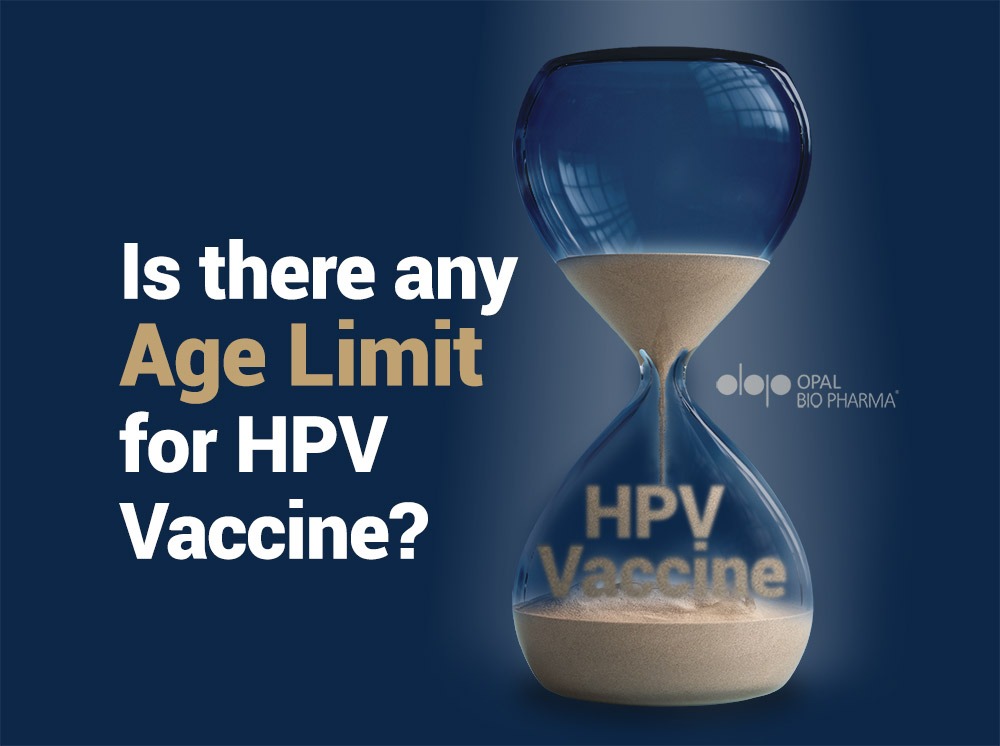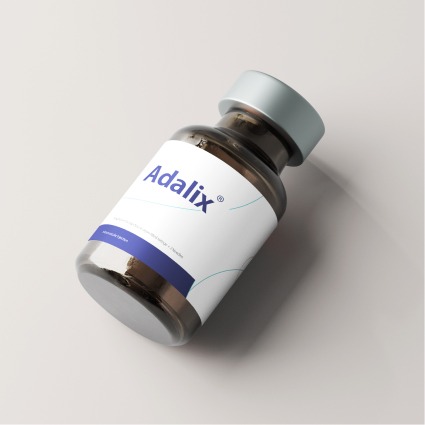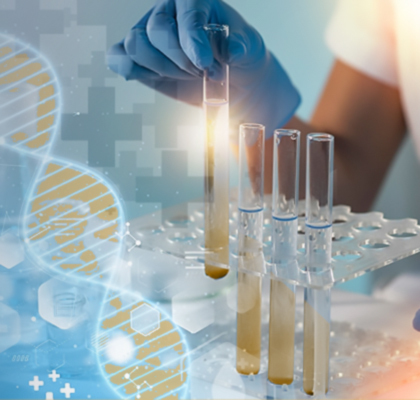Is There Any Age Limit for HPV Vaccine?
When it comes to protecting yourself and your loved ones against the human papillomavirus (HPV), there is no better way than to get vaccinated. HPV is the most common sexually transmitted infection that can cause a variety of health issues and cancers, including cervical cancer, anal cancer, vulvar cancer, vaginal cancer, penile cancer, and oropharyngeal cancer (throat cancer). However, most of these health issues can be protected if vaccination is done on time. Of course, you should know that the vaccine is a preventative measure, not a cure for HPV. While the vaccine is recommended for both males and females aged 11-26, many wonder if there is an age limit for receiving the HPV vaccine. In this blog post, we will discuss the age limits for the HPV vaccine and explore the age restrictions for the HPV vaccine and provide answers to any other related questions you may have. Read on to learn more!
The Best Age to Start HPV Vaccination
As regards the HPV vaccination and the age limit at which it can be administered, there are a lot of questions. Based on current American guidelines, the HPV vaccine can be administered to girls and boys starting at the age of nine, and the recommended age for the vaccine is between the ages of 11 and 12. You can take it until you’re 26. The vaccine produces the highest antibody counts at these age ranges for maximum risk reduction and long-lasting effects. Additionally, early vaccinations are more effective if given before sexual debut, so they’re more protective and reduce disease burden more than later vaccinations.
It should be noted, however, that the vaccine can offer protection even after sexual debut against any HPV types to which the individual has not yet been exposed. A vaccine given to a child aged 14 or 15 is late and less effective; in fact, patients aged 15 and older should receive three shots over the course of six months to achieve the same outcome. Therefore, we can say: “The earlier a child receives the HPV vaccine, the better.”
Vaccines for Over 26-year-olds
It is not usually recommended that individuals over the age of 26 receive vaccinations. It is possible for adults aged 27 to 45 to get the HPV vaccine based on a discussion with their clinician if they weren’t adequately vaccinated during their youth. Clinicians should discuss HPV vaccination with people who are most likely to benefit from it. There are several reasons why HPV vaccination of people in this age range provides less benefit, including the fact that many people in this age range have already been exposed to HPV. It is likely, in these cases, that the vaccine will not be as effective as if the female had taken it at an earlier age, as she might have already been exposed to the HPV virus or infection. In such cases, the vaccine’s effectiveness will be reduced to some extent.
Nevertheless, US health officials have recently expanded the recommended age range for HPV vaccination to protect against several types of cancer in people in their mid-40s. Since people are living longer, the recommended age for getting vaccinated against the human papillomavirus (HPV) is steadily rising. Sexual activity isn’t risk-free as you age since new cases of STDs (sexually transmitted diseases) are on the rise, so there’s no safety issue after 45. It is uncertain whether the vaccine will be effective for men and women who are past that age since so many of us have contracted HPV by that point, and cancer often takes years to develop after contracting the virus. Nonetheless, as the average life expectancy increases, it is likely to benefit the population as a whole to increase the age limit for HPV vaccination as well.
Men’s HPV Vaccine Age Limit
Men are also vaccinated within the same age range mentioned for women. It is also important for them to take care of their sexual health. The HPV virus can also cause health problems in men, even though most information about it focuses on women. Understanding how to reduce HPV infection risks is important for men. Although genital cancers aren’t common, HPV infection can increase a man’s risk. As with women, HPV can also cause genital warts in men. At the moment, there’s no HPV test for men. Unless you develop HPV-associated cancer or a benign condition like a wart, there is no way to know for sure if you are a male. One reason for the increase in head and neck cancers among men in their 50s and sometimes even 40s is that there’s no test to determine if they’ve been infected.
Age Limits and Pap and HPV test
You should get a Pap test and HPV test because the vaccine doesn’t protect you from every type of HPV. The Pap test (or Pap smear) detects cervical cancer. The human papillomavirus (HPV) can cause precancers, which are changes in the cells. It is possible that cervical cancer could be caused by these abnormal cells if they are not treated. Testing for HPV in cervical cells is part of an HPV test. The majority of women between the ages of 21 and 65 should undergo a Pap test or a Pap test and HPV test at the same time. It is not necessary to test all women every year. To check for abnormal cells that could lead to cervical cancer, women 21 to 29 should get a Pap test every three years. In general, women between the ages of 30 and 64 should get an HPV and Pap test at least every five years or at least every three years.
Types of HPV Vaccines & Different Age Range Efficiency
It should be noted that so far, three HPV vaccines have been approved by the US Food and Drug Administration (FDA) – a 9-valent HPV vaccine (Gardasil 9, 9vHPV), a quadrivalent HPV vaccine (Gardasil, 4vHPV), and a bivalent HPV vaccine (Cervarix, 2vHPV). All three HPV vaccines protect against HPV types 16 and 18, which cause most HPV cancers. In the US, only Gardasil-9 (9vHPV) has been available since late 2016, protecting against the nine following types of HPV (6, 11, 16, 18, 31, 33, 45, 52, and 58). The Cervarix vaccine is approved up to the age of 45 for women and the Gardasil vaccine up to the age of 26 for men and 45 for women. As a result of the decreased uptake by the body over the years, there has been limited research into how effective the vaccine is for women over the age of 26.
There are several benefits associated with each of the aforementioned vaccines, which is why they have been widely accepted and used around the world for the prevention of HPV throughout the world. Although these vaccines are widely available in most developed countries, it is important to note that they are relatively expensive in developing countries. Because of this, the general public cannot easily access these well-known and helpful vaccines, and everyone will need assistance to be able to benefit from their long-term benefits in the future. Despite this, OBP’s services and products are available to develop countries. This company manufactures biosimilars of the world’s most popular and in-demand vaccines, including Cervarix, which prevent most types of HPV diseases, using cutting-edge machinery and technology. This upgraded technology allows developing nations to take advantage of OBP products at a significantly lower cost than the original vaccine samples.
Dosing Schedules for Different Age Ranges
Now it’s time to consider the recommended schedule for HPV vaccinations. It is recommended that two or three shots of the HPV vaccine should be given in a series. Adolescents under 15 should get a second shot 6 to 12 months after their first. An additional dose should be administered if both doses are given less than 5 months apart from each other. A young adult or teen should get three shots between the ages of 16 and 26. After the first shot, a second shot is recommended in one or two months, followed by a third at six months. The recommended number of vaccinations for immunocompromised individuals ages 9 to 26 is three. These groups receive the same dosage schedule as young adults.
Conclusion
Millions of people become infected with HPV each year, and some die due to cervical cancer caused by certain strains of HPV. There is no doubt that vaccines are wonderful at preventing diseases in general. Even though cancer treatments have become increasingly advanced in recent years, it is still more exciting to go two steps or four steps before cancer develops, so you will never have to undergo those treatments in the future. And just because you don’t have any symptoms right now doesn’t mean you’re not at risk. Getting vaccinated at the right age will give you more immunity to different strains of this virus and potential risks down the road. In this blog post, we have tried to cover everything you need to know about the age limit for taking the HPV vaccine in an easy-to-understand way. Now you can decide when to receive the vaccine and benefit from its long-term effects.




